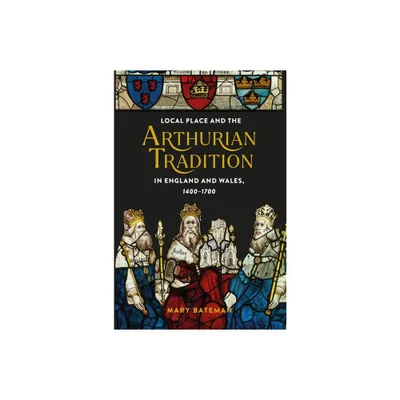Home
English Women's Spiritual Utopias, 1400-1700: New Kingdoms of Womanhood
Loading Inventory...
Barnes and Noble
English Women's Spiritual Utopias, 1400-1700: New Kingdoms of Womanhood
Current price: $89.99


Barnes and Noble
English Women's Spiritual Utopias, 1400-1700: New Kingdoms of Womanhood
Current price: $89.99
Loading Inventory...
Size: Hardcover
*Product Information may vary - to confirm product availability, pricing, and additional information please contact Barnes and Noble
English Women’s Spiritual Utopias, 1400-1700: New Kingdoms of Womanhood
uncovers a tradition of women’s utopianism that extends back to medieval women’s monasticism, overturning accounts of utopia that trace its origins solely to Thomas More. As enclosed spaces in which women wielded authority that was unavailable to them in the outside world, medieval and early modern convents were self-consciously engaged in reworking pre-existing cultural heritage to project desired proto-feminist futures. The utopianism developed within the English convent percolated outwards to unenclosed women's spiritual communities such as Mary Ward's Institute of the Blessed Virgin and the Ferrar family at Little Gidding. Convent-based utopianism further acted as an unrecognized influence on the first English women’s literary utopias by authors such as Margaret Cavendish and Mary Astell. Collectively, these female communities forged a mode of utopia that drew on the past to imagine new possibilities for themselves as well as for their larger religious and political communities. Tracking utopianism from the convent to the literary page over a period of 300 years,
New Kingdoms
writes a new history of medieval and early modern women’s intellectual work and expands the concept of utopia itself.
uncovers a tradition of women’s utopianism that extends back to medieval women’s monasticism, overturning accounts of utopia that trace its origins solely to Thomas More. As enclosed spaces in which women wielded authority that was unavailable to them in the outside world, medieval and early modern convents were self-consciously engaged in reworking pre-existing cultural heritage to project desired proto-feminist futures. The utopianism developed within the English convent percolated outwards to unenclosed women's spiritual communities such as Mary Ward's Institute of the Blessed Virgin and the Ferrar family at Little Gidding. Convent-based utopianism further acted as an unrecognized influence on the first English women’s literary utopias by authors such as Margaret Cavendish and Mary Astell. Collectively, these female communities forged a mode of utopia that drew on the past to imagine new possibilities for themselves as well as for their larger religious and political communities. Tracking utopianism from the convent to the literary page over a period of 300 years,
New Kingdoms
writes a new history of medieval and early modern women’s intellectual work and expands the concept of utopia itself.

















